Droneports: Revolutionary cargo drone delivery system to be tested in Rwanda (IMAGES)
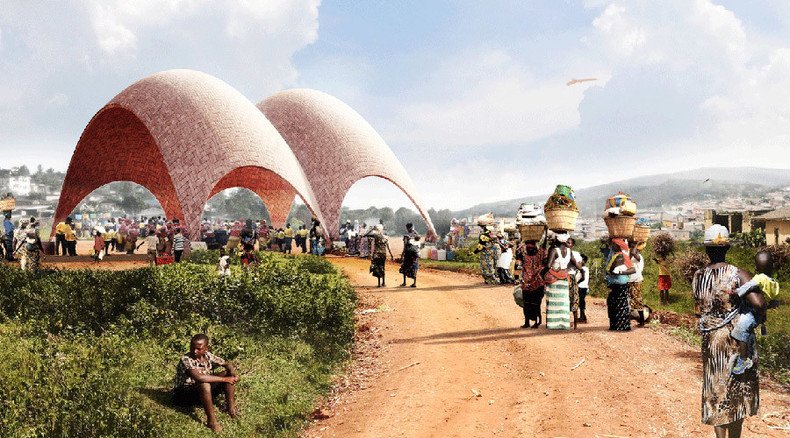
Drones have been getting a bum rap in recent years, but this could soon change: Rwanda has been chosen as a test site for a revolutionary aid delivery system for remote areas. One British architect believes cargo drones could change the aid landscape forever.
This could be the change aid agencies (and drone apologists) are looking for. Aside from being a formidable killing machine in Middle Eastern skies, the pesky devices have increasingly been the cause of trouble in the western world, as the technology explodes onto the consumer market.
Aircraft, government structures, individual privacy and even safety all stood to lose out as small drones became commercially available, with many incidents serving as proof that the world simply isn’t ready – at least not when regulators are still having a hard time catching up to the tide with concrete laws on privately-operated UAVs.
However, it’s not all doom and gloom for the unmanned aerial vehicle. A slew of companies woke up to the possibility of drones as a delivery system. Now that concept is being excitedly adapted for Rwanda – “the land of a thousand hills.”
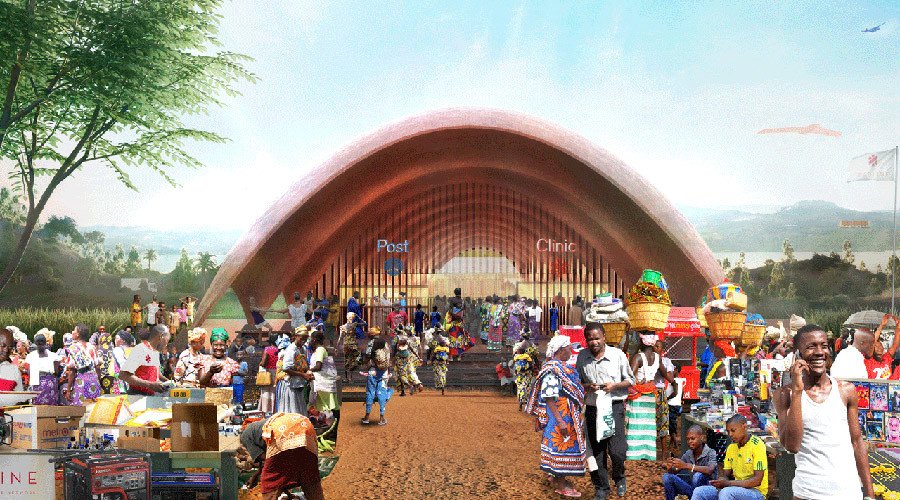
British architect Norman Foster and his firm Foster + Partners are at the forefront of the initiative to set up “cargo drone routs capable of delivering urgent and precious supplies to remote areas on a massive scale.”
Rwanda was battered by months of fighting during the bloody genocide of 1994. From the ashes of international catastrophe a new Rwanda rose up. But its geography and landscape still leaves much to be desired, especially when lives depend on a workable infrastructure.
“Cargo drone routes have utility wherever there is a lack of roads. Just as mobile phones dispensed with landlines, cargo drones can transcend geographical barriers such as mountains, lakes, and unnavigable rivers without the need for large-scale physical infrastructure,” Lord Foster explained in the press release.

Africa’s population is set to double by 2050, and just a third of the continent’s population lives within two kilometres of roads traversable all year round. An African wet season can easily paralyze all delivery efforts, creating swamps where sand used to be.
Investing in roads is a lengthy and costly venture. So, until progression in this sphere is more rapid, Foster proposes the transportation of things like “blood and life-saving supplies over 100 kilometers [60mi]at minimal cost, providing an affordable alternative that can complement road-based deliveries.”
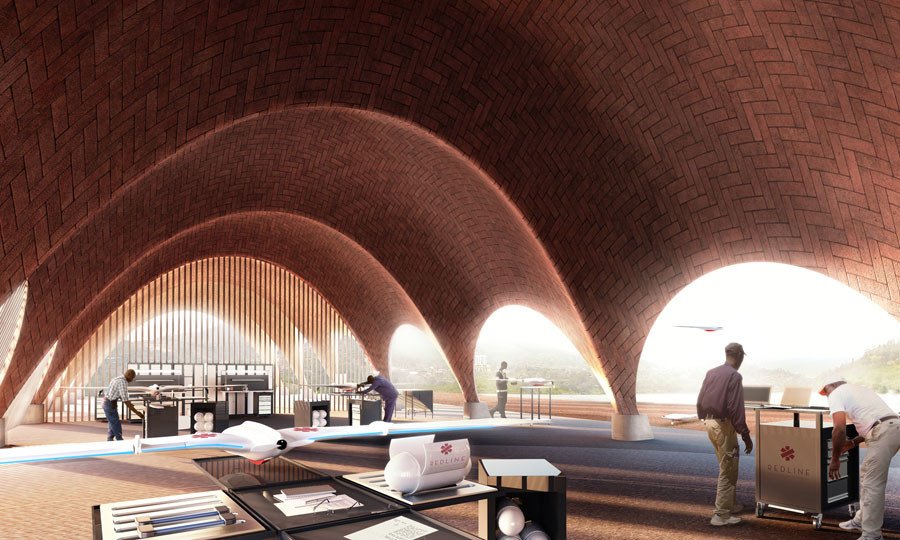
The idea will be rolled out gradually, with lighter drones carrying lighter loads. By 2025, the plan, hatched by the Swiss Federal Institute of Technology in Lausanne and Afrotech – its company – will see drones with a six-meter wingspan ferrying loads of up to 100kgs across the east-African nation.
Foster’s proposal talks of Droneports – facilities for UAVs to land and take off, doubling as a clinic, courier room and e-commerce hub. But it doesn’t stop there. "[They] will also be manufacturing centres for drones, generating employment opportunities for the local population," Foster says.
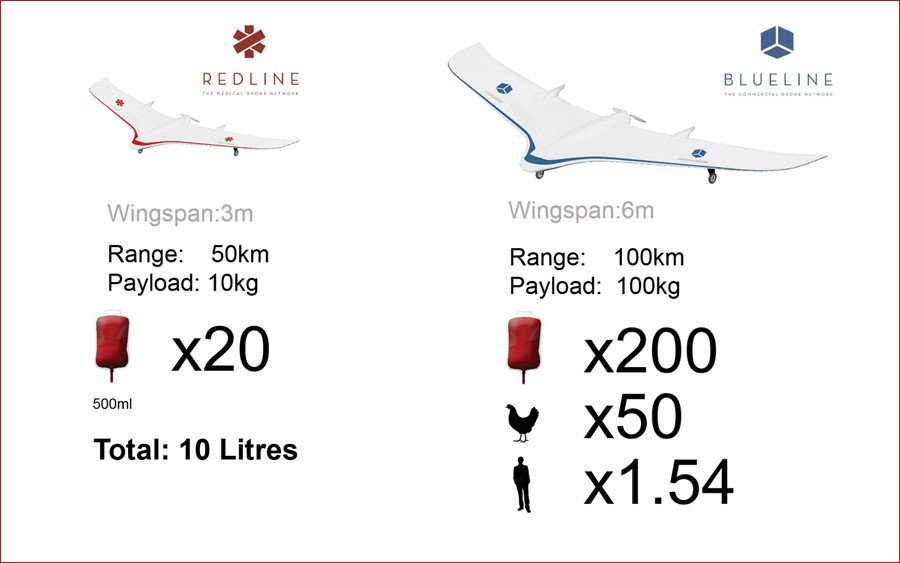
“The Droneport offers a new typology for a building which we hope will grow into a ubiquitous presence, much like petrol stations have become dispersed infrastructure for road traffic.
“The project is an evolution of Foster + Partners’ previous experience in building airports, as well as earlier lunar building studies conducted in association with the European Space Agency,” the proposal also reads.
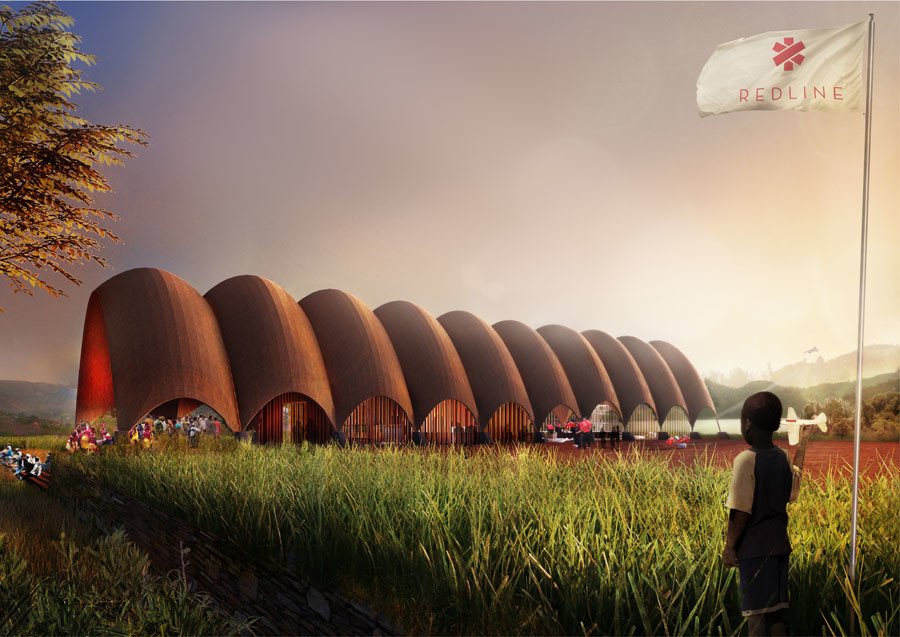
The pilot project will commence in 2016, based in Rwanda. The first three drone ports are to be completed by 2020. Their presence, according to Foster, would already enable deliveries to 44 percent of Rwandans. The idea is to expand the project into new phases, to up to 40 Droneports across the country.












